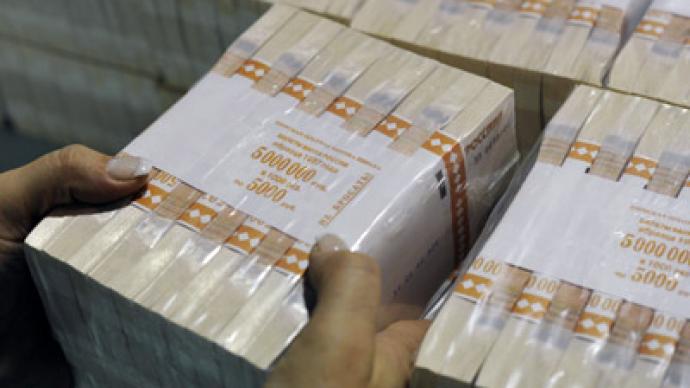Russia hits top-10 in budget transparency report

Russia has significantly improved its budget transparency over the years and is now telling its public more about the government income and spending than countries such as Germany or Spain, a new survey suggests.
The Open Budget Survey 2012 released this week was penned by the International Budget Partnership, an international NGO advocating government transparency.The international think-tank calculates the so-called Open Budget Index (OBI), a 0 to 100 score indicating the comprehensiveness of the information a certain country’s government reports about its budget planning and execution.The new report also evaluates the strength the legislature and supreme auditors over budget issues and the degree of public participation.The index is given based on questionnaires completed by independent researchers in each country. The survey “does not reflect opinions,” but “measures observable facts related to budget transparency, accountability, and participation,” the report says.Topping the list are countries like New Zealand, Norway, Britain and, surprisingly to some, South Africa. Together with Sweden and France, their OBI score is over 80, the benchmark separating the countries ensuring merely “significant” budget transparency from those providing “extensive” information on their budgets.On the bottom of the rating are countries with OBI score of 20 or less, indicating that the public there has little or no information on how the government earns and spends state money. Qatar, Myanmar and Equatorial Guinea all received an unflattering rating of 0 in the survey. Twenty-one countries don’t bother to publish their budgets at all, making it available for internal use only.Globally, “the state of budget transparency and accountability is generally dismal,” the report says. The average OBI score for the 100 countries surveyed is just 41. Wealthy democracies tend to be more transparent that oil-exporting autocracies or poor countries.But the examples of Afghanistan, Mexico, Jordan and South Africa, all of which score significantly better than their peers, show that “any government that has the political will to advance reforms can make its budget appropriately transparent,” the report says. The document recommends those with great room for improvement to release budget documents already used by the authorities as an obvious low-cost step to raise transparency.On the brighter side, progress is evident. The first open Budget Survey prepared in 2006 had the average score of 47, but included just 47 countries. If only those were taken into account now, the average score would jump to 57, with those who started low showing the most significant improvement.Russia is among those. It started with the OBI score of 47 back in 2006 and currently rates a 74. The biggest improvement happened between 2010 and 2012, over which the country leaped forward by 14 points. It shares the 10th place in the rating with Slovenia.The countries moving fastest “in the wrong direction” are Egypt, Serbia, Sri Lanka, Zambia – which lost at least 15 points since the previous survey – as they ceased to publish key budget documents or barred the general public from reading them.The report singles out South Korea as an example of how the government can extensively engage the public in budgetary issues. Seoul by far outperformed other participants in the area.












